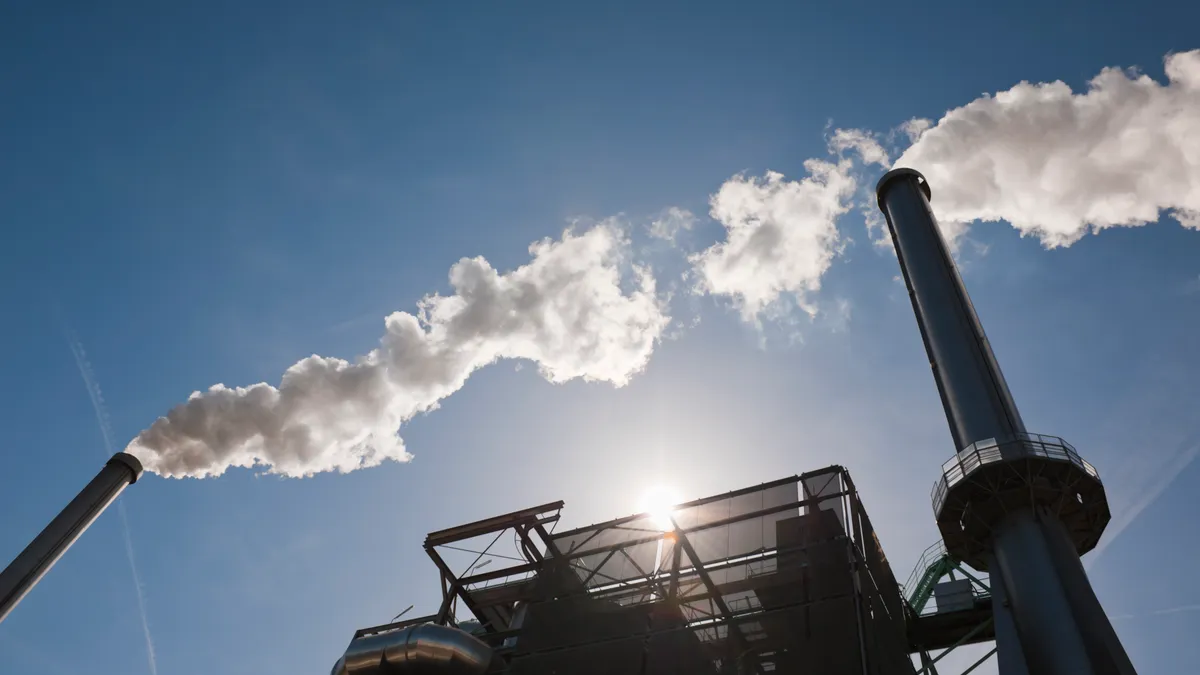Between economic headwinds and a time of dramatic change, from sustainability to technology, the CFO position continues to be an ever-evolving role. Finance chiefs limiting themselves to the accounting realm is a way of the past.
For months now, CFOs have been feeling the pressure of advancing ESG reporting standards. Now, the SEC is likely to publish a rule before January requiring publicly traded companies to provide detailed disclosures on carbon emissions and climate risk.
“This proposal will have a fundamental shift in how businesses are going to be operating from being just financially focused to financially and sustainably focused at a high level,” Nate Greensphan, senior product manager for Redwood Logistics, a third-party logistics company, said in an interview.
In order for CFOs to be prepared for what is to come as well as their growing list of responsibilities, having a strong relationship with their supply chain counterparts is “absolutely critical,” said Brian Glick, CEO of Chain.io, a supply chain integration platform, in an interview.
Establish a set of standards between teams
In order to set the precedent for a successful relationship between financial organizations and the supply chain organizations, establishing rules for engagement upfront is essential, Glick told CFO Dive. This means CFOs need to be very clear with their supply chain partners as to what their expectations are, he said.
“Supply chain organizations, while they are very data driven, do not generally operate under the same level of discipline as financial organizations. That intertwining is going to be very challenging, especially in the big market companies who do a lot of things themselves,” said Glick.
Challenges in GHG emission reporting
With the SEC requiring published disclosures on carbon emissions, supply chain partners have to “have their own house in order,” explained Greensphan. “As a supply chain partner, you have to have clarity into your own impacts when it comes to emissions, as well as be able to account for your customers,” he said.
Education is essential when it comes to finding success in greenhouse gas emission reporting, said Greensphan.
Under the proposed SEC rule, CFOs will be responsible for reporting Scope 1, 2 and 3 of carbon emissions.
Scope 1 emissions are direct — meaning they come from the company themselves. Scope 2 emissions are indirect and usually associated with the purchase of electricity, steam, heat or cooling. Scope 3 emissions are the result of activities from assets not owned or controlled by the reporting organization itself, but an organization indirectly impacted from in its value chain.
The biggest challenges arise from Scope 3, said Glick. “Scope 3 involves industries that are not used to the level of diligence that you need for proper financial reporting. So there's going to be a lot of coaching for standardizing these processes,” he said.
Overcoming these challenges “really starts with good and consistent data,” said James Coombes, CEO and co-founder of Vector.ai, a supply chain automation company.
The partnership with supply chain vendors
Honing in on this data and understanding it is where supply chain vendors come in, and where CFOs need to look to have a strong relationship with them, said Coombes. “Under this proposal, having some kind of credible way of actually measuring the emissions profile of your business will be more and more important, and there are very few places where this is as important as it is in the supply chain,” he said.
When it comes to having good data in practice, a lot of businesses are run with unstrucuted or decentralized data, explained Coombes, “without consistency of data, how are you supposed to have strong visibility into your business?” he stressed.













